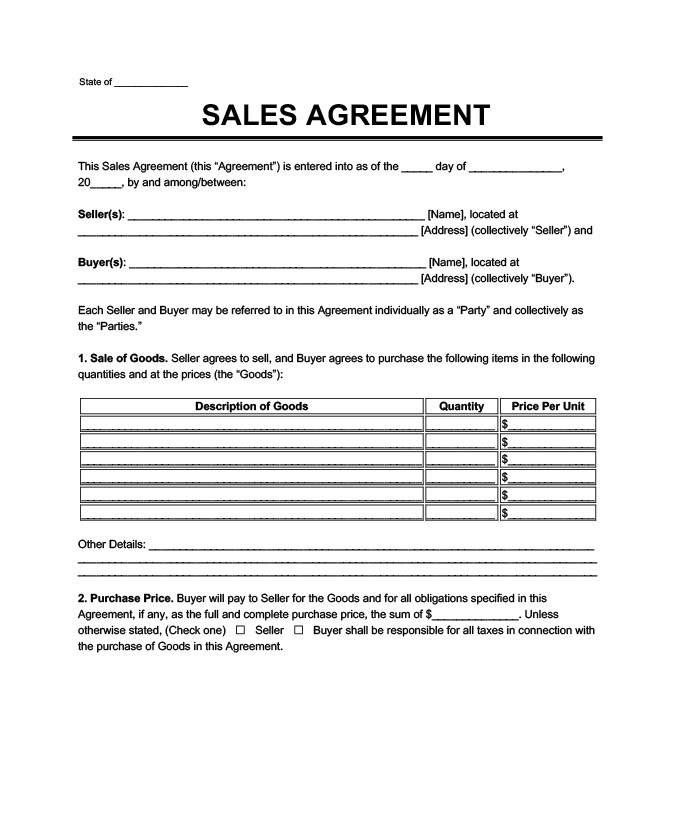A selling contract is a legally binding agreement between two parties involved in an exchange of money for goods, services, and/or property. One party acts as the buyer, while the other acts as the seller. Both the buyer and seller can be individuals or organizations.
This contract serves as a written record of the terms and conditions agreed upon by both parties, ensuring that both sides are protected and held accountable.

Why is a Selling Contract Important?
A selling contract is crucial for both buyers and sellers as it provides several benefits.
- Firstly, it establishes the terms and conditions of the transaction, clearly outlining the responsibilities and obligations of each party. This helps to prevent any misunderstandings or disputes that may arise in the future.
- Secondly, a selling contract serves as a legal document that can be used in court if a dispute does occur. It provides evidence of the agreement made between the buyer and seller, making it easier to resolve any conflicts that may arise.
- Furthermore, having a selling contract in place helps to build trust between the buyer and seller. It shows a level of professionalism and seriousness in conducting the transaction, giving both parties peace of mind knowing that they are protected by a legally binding agreement.
How to Create a Selling Contract?
Creating a selling contract is a fairly straightforward process.
Here are the steps involved:
1. Identify the parties involved: Begin by clearly stating the names and contact information of both the buyer and seller. If the buyer or seller is an organization, include the company name and address.
2. Define the terms and conditions: Clearly outline the terms of the transaction, including the description of the goods, services, or property being exchanged, the price, payment terms, delivery details, and any warranties or guarantees.
3. Include dispute resolution clauses: Consider including clauses that specify how disputes will be resolved, such as through mediation, arbitration, or litigation.
4. Include any additional clauses: Depending on the nature of the transaction, you may need to include additional clauses, such as confidentiality agreements, non-compete clauses, or intellectual property rights clauses.
5. Seek legal advice if necessary: If you are unsure about any aspect of the contract or want to ensure its legality, it is advisable to seek legal advice from a qualified professional.
Examples




Tips for Successful Selling Contracts
Creating a successful selling contract requires attention to detail and clarity. Here are some tips to help you create an effective contract:
- Clearly define the terms: Use clear and concise language to define the terms and conditions of the transaction. Avoid using jargon or complicated language that may confuse the parties involved.
- Include all relevant details: Make sure to include all relevant details, such as quantities, specifications, and deadlines. This helps to avoid any misunderstandings or disagreements in the future.
- Be specific: Use specific language when describing the goods, services, or property being exchanged. This helps to avoid any ambiguity or confusion.
- Consider including an expiration date: If the terms of the contract are time-sensitive, consider including an expiration date to ensure that the agreement is still valid.
- Make it easily understandable: Use a conversational style and avoid complex legal terminology. This ensures that both parties can easily understand the terms and conditions of the contract.
Conclusion
In conclusion, a selling contract is an essential tool for buyers and sellers involved in the exchange of money for goods, services, and/or property. It provides a written record of the agreement, protects both parties and helps to establish trust and professionalism.
By following the steps outlined above and incorporating the tips provided, you can create a successful selling contract that ensures a smooth transaction for all parties involved.
Selling Contract Template – Download